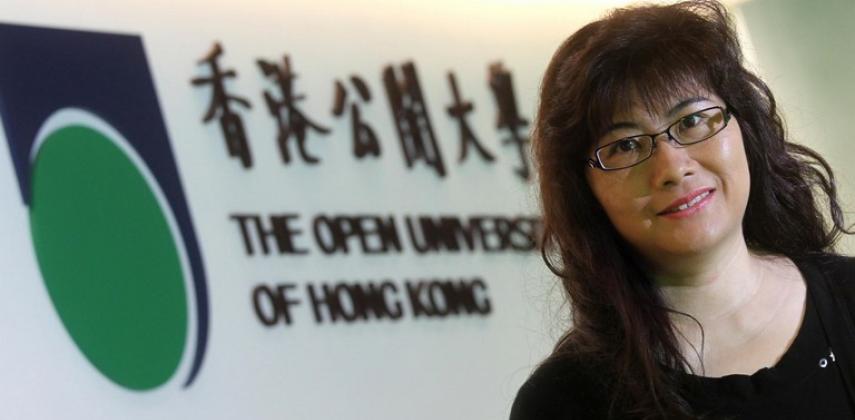Sky-high prices, rigid content and new editions that are forced into use are common problems in the market for textbooks.
According to Steve Jobs’ biographer Walter Isaacson, Apple’s founder apparently once said that the textbook business was an “US$8 billion-a-year industry ripe for digital destruction”.
Dr Eva Tsang, senior course designer in the Open University of Hong Kong’s (OUHK) Educational Technology and Publishing Unit, agrees. “The conventional textbook-publishing model of heavy upfront investment, highly specialised expert development teams and lengthy production procedures is inadequate to meet modern demands,” she says.
OUHK is getting ahead of Apple in this field with its project to develop open-licence textbooks – electronic textbooks open for online access by all users available online for free – which they hope will alleviate these problems.
“Open textbooks can help solve the textbook problems that have been confronting Hong Kong during the past decade,” says Tsang, who is tasked with the development of the open textbooks. She adds that they will not only be more flexible and easier to update, but also cheaper.
Those who dislike reading online, or love to highlight content for later reference, can simply download and print out the books. This way they only pay for the paper and the printing.
OUHK, as a long-distance learning institution, has broad experience in learning-material development. This includes multimedia and flexibly structured course materials in the form of standalone and ready-to-use course materials, and modules in various academic disciplines ranging from postgraduate to sub-degree levels.
The open-textbook project will develop English textbooks for primary and secondary schools with curricula closely aligned to Education Bureau requirements.
Tsang’s unit is hiring experienced English textbook writers to form four teams that will develop the books. Each team will work on one of the four key educational stages: primary levels one to three and four to six, and secondary levels one to three and four to six. Each team will include three to four writers, an instructional designer, editors and teachers, who will also play the role of peer reviewers.
“Those who have experience in teaching English in primary and secondary schools in Hong Kong will have an advantage,” Tsang says. “Team members will need an excellent command of the English language at native-speaker level. They should also have a recognised bachelor’s degree in English, linguistics or a related discipline.”
A minimum of five years’ teaching or related education experience is also required. A higher degree in education and close connection with school teachers will certainly be helpful.
Applicants should indicate what key education stage or stages are most suitable for them in their cover letter.
The teams will develop teaching content from scratch, including core materials for the subject curriculum, learning strategies, related activities and exercises, audio-visual components, and question-and-answer sets for interactive exercises.
“The contract fee will vary depending on the key stage. Development work for each key stage will take between 10 and 12 months,” Tsang says.
OUHK has a stringent quality-assurance system in place for the development of learning materials that is carried out by subject experts, editors and technologists during the development process. External quality assurance will also be provided by peer reviews and a government review panel and, if accepted, the books will be placed on the Education Bureau’s recommended textbook list.
Writers will be assisted by a consortium made up of potential contributors, beneficiary schools and organisations which will share expertise, help out with manpower and coordinate efforts.
“At the individual level, interested and qualified authors, editors, teachers from primary and secondary schools, and professors from tertiary institutions will be invited to join the teams of developers and contributors at different levels,” Tsang says.
To round off the service, training will be provided to teachers on the use of the textbooks, teaching materials and open-learning resources.


